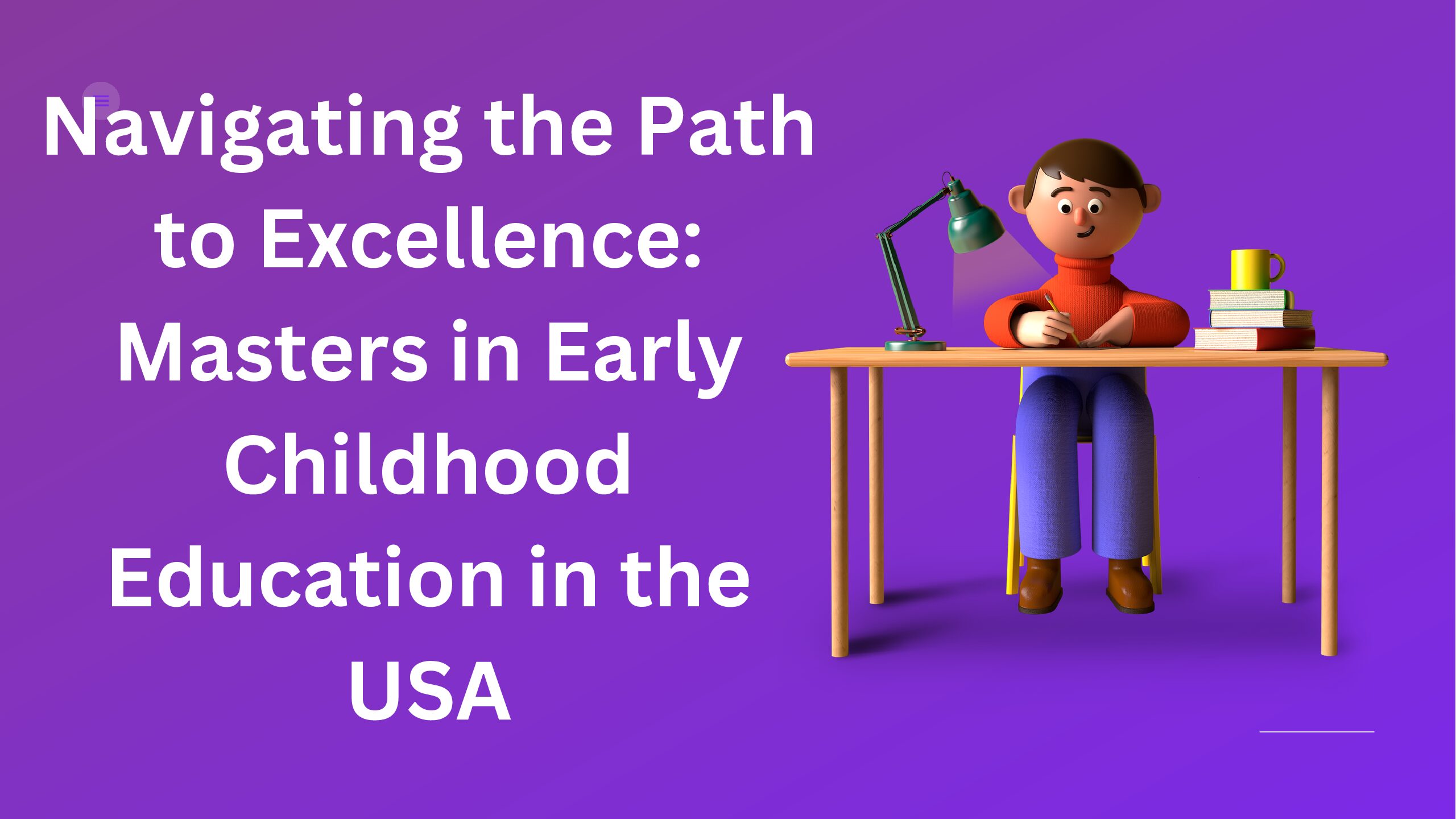Introduction masters in early childhood education in usa
In the realm of education, the formative years of a child’s life hold immense significance. The quality of early childhood education can shape a child’s future trajectory, making it a pivotal area of focus for educators and policymakers alike. Pursuing a Master’s degree in Early Childhood Education (ECE) in the USA equips educators with the knowledge, skills, and tools necessary to make a lasting impact on young learners. In this comprehensive guide, we delve into the nuances of pursuing a Masters in Early Childhood Education in the USA, exploring its significance, program options, career prospects, and masters in early childhood education in usa.
Understanding masters in early childhood education in usa
Early childhood education encompasses the educational strategies and methodologies tailored to meet the developmental needs of children from birth to around eight years old. This period is critical for cognitive, emotional, and social development, laying the foundation for future learning and well-being. ECE programs focus on nurturing a child’s holistic development, fostering curiosity, creativity, and critical thinking skills.
The Significance of a Masters in Early Childhood Education
A Master’s degree in Early Childhood Education goes beyond basic teaching credentials, offering in-depth knowledge and specialized training in areas such as child development, curriculum design, assessment techniques, and educational psychology. Here are some key reasons why pursuing a Masters in ECE is advantageous:
- Advanced Expertise: A Masters program delves deeper into ECE theories, methodologies, and research, equipping educators with advanced expertise to address the diverse needs of young learners effectively.
- Career Advancement: Holding a Master’s degree can open doors to leadership positions in educational institutions, advocacy organizations, government agencies, and research institutions.
- Professional Development: ECE programs often incorporate practical experiences such as internships, fieldwork, and research projects, facilitating professional growth and skill development.
- Impactful Teaching: With a solid foundation in ECE principles and best practices, graduates can make a profound difference in the lives of children and families, contributing positively to society.
Program Options and Specializations masters in early childhood education in usa
In the USA, numerous universities offer Master’s programs in Early Childhood Education, catering to diverse interests and career goals. Prospective students can choose from a variety of program options, including:
- Master of Arts (MA) in Early Childhood Education: Emphasizes a balance between theory and practice, preparing educators for teaching, curriculum development, and leadership roles.
- Master of Science (MS) in Early Childhood Education: Focuses on research-based approaches to ECE, preparing graduates for careers in academia, policy analysis, and program evaluation.
- Master of Education (M.Ed.) in Early Childhood Education: Designed for practicing educators seeking advanced training in instructional strategies, classroom management, and educational leadership.
- Specialized Tracks and Concentrations: Some programs offer specialized tracks or concentrations in areas such as special education, bilingual education, literacy development, or administration.

Admission Requirements and Prerequisites
Admission requirements for Master’s programs in Early Childhood Education vary depending on the institution and program. However, common prerequisites may include:
- A bachelor’s degree from an accredited institution.
- Minimum GPA requirements.
- Letters of recommendation.
- Statement of purpose outlining career goals and motivations for pursuing a Master’s in ECE.
- Relevant professional experience (e.g., teaching or volunteering in early childhood settings).
- GRE scores (sometimes optional).
Prospective students are encouraged to research specific program requirements and application deadlines well in advance.
Career Prospects and Opportunities
A Master’s degree in Early Childhood Education opens up a plethora of career opportunities across various sectors. Graduates may pursue roles such as:
- Early Childhood Educator: Lead teacher or administrator in preschools, childcare centers, or Head Start programs.
- Curriculum Specialist: Develop and implement age-appropriate curricula and instructional materials.
- Child Development Specialist: Provide support and guidance to families, advocating for children’s developmental needs.
- Education Consultant: Offer expertise to schools, districts, and organizations on best practices in ECE.
- Researcher or Policy Analyst: Conduct research or contribute to policy initiatives aimed at improving early childhood education outcomes.
Conclusion
Investing in a Master’s degree in Early Childhood Education is not only a personal and professional milestone but also a commitment to the future of education and society as a whole. By honing their skills, knowledge, and passion for nurturing young minds, educators can become catalysts for positive change, laying the groundwork for a brighter and more equitable future. Whether aspiring to lead classrooms, influence policies, or drive research, a Masters in ECE equips individuals with the tools they need to excel in the dynamic field of early childhood education in the USA.
